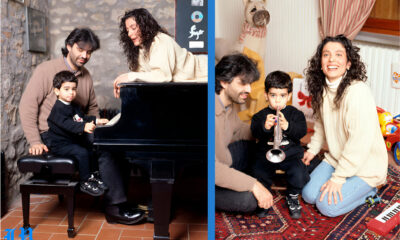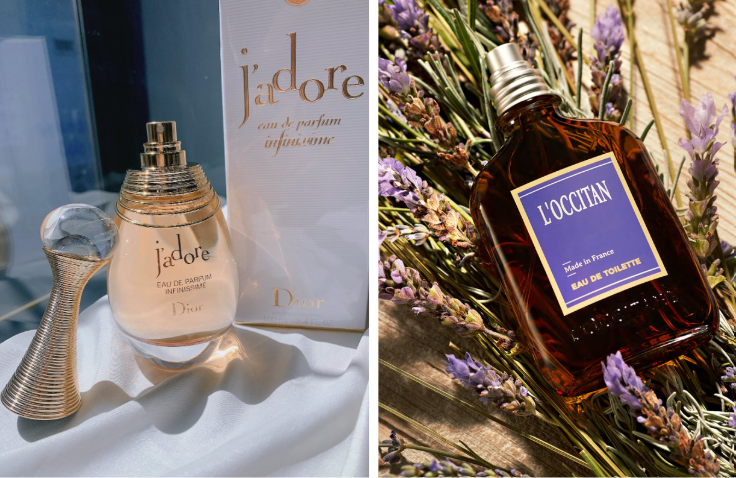Eau de Toilette, a timeless fragrance category, continues to dominate the world of perfumes in 2024. Known for its light and refreshing nature, it is perfect for everyday wear and offers a wide variety of scents that cater to diverse tastes. Whether you’re exploring fragrances for the first time or looking to expand your collection, understanding Eau de Toilette can help you make the right choice for your lifestyle and preferences.
What is Eau de Toilette?
Eau de Toilette, often abbreviated as EDT, is a type of fragrance that falls between Eau de Cologne and Eau de Parfum in terms of concentration and longevity. It typically contains 5% to 15% perfume oil, diluted in alcohol and water, which makes it lighter and less intense than heavier fragrances. Eau de Toilette is particularly popular for its versatility and is ideal for daytime use or casual occasions where a subtle yet noticeable scent is desired.
The History and Origins of Eau de Toilette
Where and How Eau de Toilette Originated
The term Eau de Toilette originates from the French word “toilette,” which means “grooming” or “dressing.” Historically, it referred to lightly scented waters used during morning grooming routines in 18th-century France. These fragrant waters were a symbol of sophistication and elegance among the European elite.
Over time, Eau de Toilette transitioned from being a luxury product to an accessible everyday fragrance for people across the world. Its fresh and less concentrated formula made it perfect for frequent use, especially in warmer climates or during daytime activities.
Evolution from Luxury Product to Everyday Fragrance
In the 20th century, the popularity of Eau de Toilette expanded significantly as major perfume houses like Chanel and Dior began producing EDT versions of their iconic fragrances. Its affordability compared to more concentrated perfumes made it an essential part of many people’s grooming rituals. Today, Eau de Toilette remains one of the most widely used types of fragrances globally.
How Eau de Toilette Differs from Other Fragrances
Comparison with Eau de Parfum, Cologne, and Perfume
Understanding the differences between Eau de Toilette, Eau de Parfum, Cologne, and Perfume is key to selecting the right scent:
- Eau de Parfum (EDP): Contains 15% to 20% perfume oil and is richer, more intense, and longer-lasting (6–8 hours).
- Perfume (Parfum): The most concentrated form (20%–40%) with the longest wear time, often lasting all day or longer.
- Cologne: Lightest concentration (2%–5%), typically used for refreshing short-term wear.
Eau de Toilette strikes the perfect balance, offering a noticeable fragrance without being overpowering.
Key Differences in Concentration, Longevity, and Purpose
The moderate concentration of Eau de Toilette means it usually lasts for 3–5 hours, making it ideal for daytime wear. Its light composition ensures that it doesn’t overwhelm the senses, making it perfect for those who prefer a subtle fragrance.
Top Notes, Heart Notes, and Base Notes in Eau de Toilette
How Fragrances Are Layered in Eau de Toilette
Like all perfumes, Eau de Toilette consists of three layers of notes:
- Top Notes: The initial impression, often light and fresh (e.g., citrus or green notes).
- Heart Notes: The core of the fragrance, often floral or spicy, that emerges as the top notes fade.
- Base Notes: The long-lasting foundation, often woody, musky, or amber-based scents.
This layering creates a dynamic and evolving scent experience that changes over time as the fragrance settles on your skin.
Common Scents and Their Characteristics
Eau de Toilette scents often feature refreshing and versatile notes such as:
- Citrus (lemon, bergamot): Perfect for summer and daytime wear.
- Floral (rose, jasmine): Romantic and elegant.
- Woody (sandalwood, cedar): Warm and grounding.
- Fresh (marine, green notes): Crisp and invigorating.
Best Occasions to Wear Eau de Toilette
Why It’s Perfect for Daytime and Casual Use
Eau de Toilette is ideal for daytime wear due to its light, non-intrusive nature. Whether you’re heading to work, running errands, or meeting friends for brunch, its refreshing scent ensures you stay fragrant without overwhelming the people around you.
Seasonal Recommendations: Summer vs. Winter Fragrances
In warmer months, opt for citrus-based EDTs for a breezy, energizing vibe. During cooler months, Eau de Toilette with woody or spicy notes can add a cozy and sophisticated touch.
How to Choose the Right Eau de Toilette
Understanding Fragrance Families
Fragrances are categorized into families based on their dominant scent profiles. To find your perfect Eau de Toilette:
- Floral: Great for romantic and feminine preferences.
- Woody: Ideal for those who enjoy earthy, rich scents.
- Citrus: Best for a clean, refreshing aroma.
- Oriental: Features exotic spices and is perfect for evening wear.
Matching a Scent to Your Personality and Style
Your choice of Eau de Toilette should reflect your personality. For example, if you’re adventurous, a bold, citrusy EDT may suit you. For a sophisticated, minimalistic style, choose fragrances with subtle floral or woody notes.
Tips for Applying and Maximizing Eau de Toilette
Proper Application Techniques for Longer-Lasting Scent
To make your Eau de Toilette last longer, apply it on pulse points, such as the wrists, behind the ears, and at the base of the throat. These areas emit heat, which helps the fragrance diffuse naturally throughout the day.
Where to Apply It: Pulse Points and Beyond
You can also lightly spray Eau de Toilette on your clothing or hair for added longevity. However, avoid over-applying, as the lighter nature of EDT is designed to provide a subtle fragrance.
Popular Eau de Toilette Brands in 2024
High-End Designer Options
Some of the most iconic designer Eau de Toilette fragrances include:
- Chanel No. 5 Eau de Toilette: A timeless classic with floral and aldehyde notes.
- Dior Sauvage: A bold and fresh EDT for men, blending citrus and woody notes.
- Jo Malone Lime Basil & Mandarin: A refreshing unisex fragrance with citrus and herbal elements.
Affordable and Niche Brands Gaining Popularity
Brands like Zara and The Body Shop offer affordable Eau de Toilette options, while niche brands such as Byredo and Maison Margiela are gaining attention for their unique and innovative scents.

 Celebrity7 months ago
Celebrity7 months ago
 Celebrity7 months ago
Celebrity7 months ago
 Celebrity7 months ago
Celebrity7 months ago
 Celebrity6 months ago
Celebrity6 months ago









